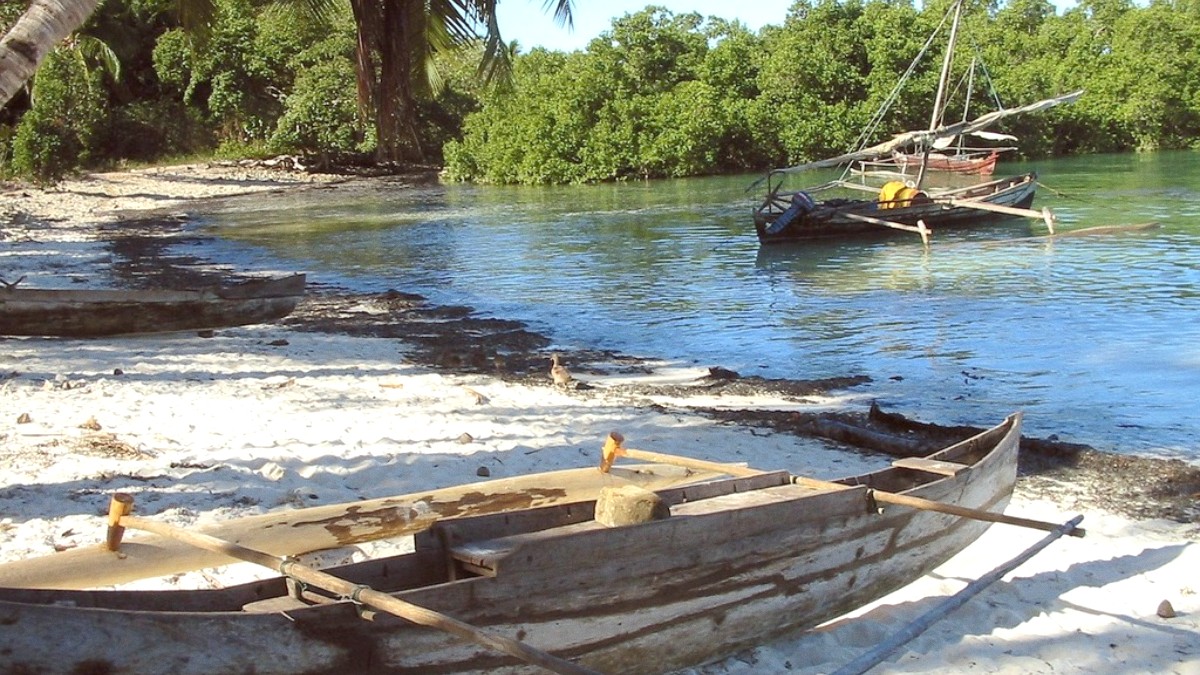
Kiribati generally costs more than many popular tourist destinations. Its remote location and reliance on imports contribute to higher prices for goods and services. Carry sufficient cash (AUD) for most transactions. This holds true for smaller guesthouses, local transport, market purchases, and any travel beyond Tarawa and Kiritimati. Currency exchange facilities are scarce. Exchange a good amount of Australian Dollars before arriving in Kiribati. Counting on airport exchange services or local banks can be difficult.
Budget Traveler Daily Costs: AUD 80 - 150+ This budget allows for basic travel. Accommodations would likely involve simple guesthouses or community accommodations, AUD 40-80 per night. Meals would be at local eateries (Kaubure) or markets, AUD 20-40 per day. Transportation relies on public buses in South Tarawa (AUD 1-3 per ride) or walking. Inter-island domestic flight travel is likely outside this budget. Options at this level are limited, calling for flexibility and a willingness to embrace local, rustic conditions.
Fishing trips on Kiritimati often start at AUD 500-1000+ per person per day, as packages often include guiding, boat costs, and accommodation. This category represents the top tier of expenses.
Tipping is not a traditional part of Kiribati culture. Most situations, including restaurants, taxis, and guesthouses, do not expect tips. For guides, especially fishing guides on Kiritimati, or staff at higher-end resorts who offer exceptional service, a small gratuity may be appreciated. It stays a choice, not a mandate.
Prices per night
AUD 40 - 80
AUD 80 - 200
Prices per meal
AUD 5 - 15
AUD 15 - 40+
Prices per ride/return
AUD 1 - 3
AUD 400 - 800+ (return)
Carry sufficient cash. This avoids counting on potentially non-functional ATMs or businesses that do not accept cards.
Stay in local guesthouses or community accommodations. These options offer lower prices than hotels and feature a more local experience.
Eat at local Kaubure (eateries) or market stalls. These feature authentic flavors at a fraction of the cost of hotel restaurants.
Use public buses in South Tarawa. This is the most economical way to move around the capital.
Buy local produce and goods at markets. These stay fresher and cheaper than imported items from stores.
Negotiate prices for informal boat hires or transport where proper. Do so respectfully.
Before travel, consult a travel health professional for personalized vaccination guidance.
A Yellow Fever vaccination certificate is mandatory if you arrive from or transit through a country with Yellow Fever transmission risk. Carry the official certificate.
Awareness and prevention address common health concerns.
Kiribati experiences a low risk of cyclones. Tropical storms can occur during the wet season (November-April). Tsunamis pose a potential, though infrequent, risk. If you stay near the coast, learn about evacuation routes.